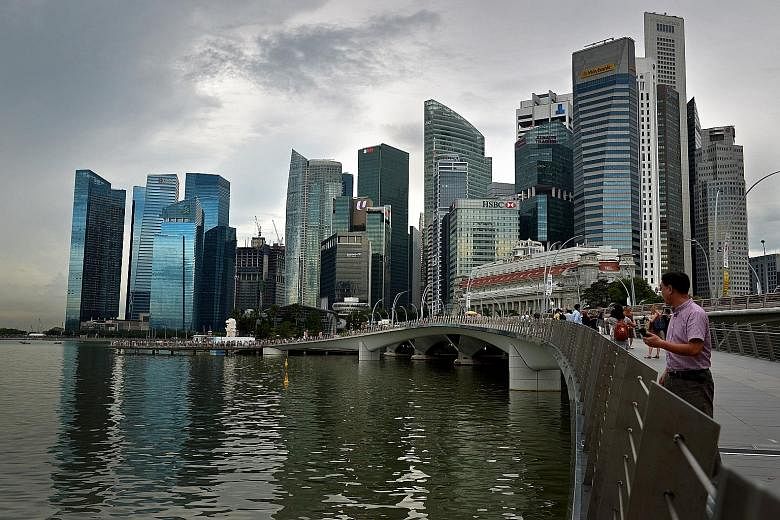The Monetary Authority of Singapore (MAS) continues to have a bright outlook for the corporate debt market, which is underpinned by demand from China and India, it said in a report yesterday.
For one thing, China's "One Belt, One Road" initiative, which seeks to develop infrastructure links in the country, should catalyse greater bond issuances, including offshore yuan bonds by Chinese companies to fund their trade and investment activities.
The MAS also expects more offshore rupee-denominated bond issuances here, following the Reserve Bank of India's rule change in September. This is especially so, given "a deep pool of India-oriented investors, and with more than 80 per cent of overseas Indian bonds listed on the Singapore Exchange", it said.
The MAS also said yesterday that Singapore's corporate debt market grew last year despite uncertainty over the slowdown in Asia and divergent monetary policies of major economies. Total outstanding debt rose 13 per cent year on year to $308 billion.
Corporate bond issuance volume expanded at a compound annual growth rate of 35 per cent from 2010 to a record high of $200 billion last year, it added.
Well-rated foreign financial institutions and companies contributed significantly to this growth, including the International Bank for Reconstruction and Development, which raised $500 million during the year.
Last year also saw a record number of 149 issuers, including 62 first-timers. Metals trader Trafigura raised $200 million through its first Singdollar bond, while other first-time issuers included Lend Lease Group from Australia and Sun Hung Kai Properties from Hong Kong.
Singapore's bond market continued to attract issuances in foreign currencies, with non-Singdollar debt issuance accounting for 87 per cent of total debt issuance last year, the MAS said. The US dollar was the main currency used in the bond market.
Singapore's offshore yuan bond market also grew strongly last year, with total issuance of offshore yuan bonds reaching 35 billion yuan (S$7.6 billion), or 5 per cent of total non-Singdollar debt issuances.
Mr Clifford Lee, DBS Bank head of fixed income, said that while markets have been choppy this year amid issues from US dollar volatility to oil prices to the yuan devaluation, there were some good issues. "We saw the retail bond market opening up - with four retail bonds this year, up from one last year. Foreign issuers also successfully tapped the Singdollar bond market, such as ANZ and Julius Baer Group," he said.
"The Singdollar market continues to be relevant and these deals add confidence to the market going into next year, even as more volatility is expected," he added.


